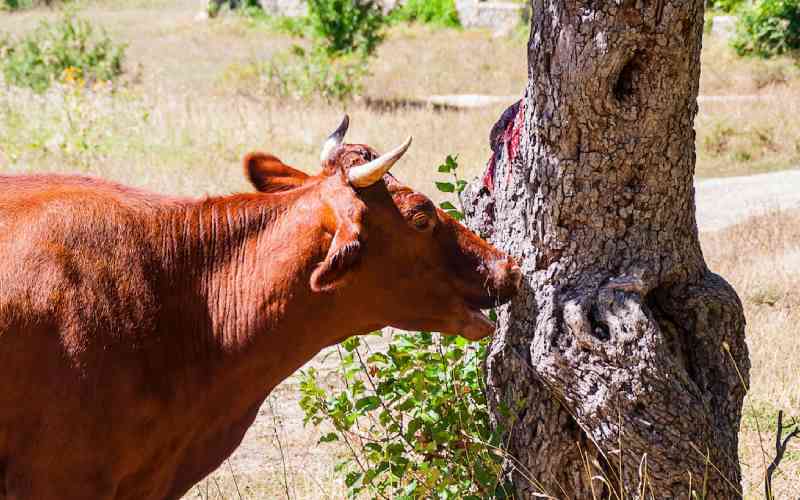
Jambo Dr Othieno. My cows have been eating cypress tree barks from last year. All my trees have been stripped of the barks. How can I know which minerals they are missing? I give them salts and mineral lick blocks but there is no change. Even the little calves are also eating tree barks. (naambiwa zimerogwa). I need a lasting solution to stop this habit. Thank you. [Elizabeth Koskei]
Thanks for reading the Smart Harvest. Yes, eating tree barks is a sign of a problem. There are three reasons that will push cattle to gnaw on tree barks. Witchcraft is not one of them though.